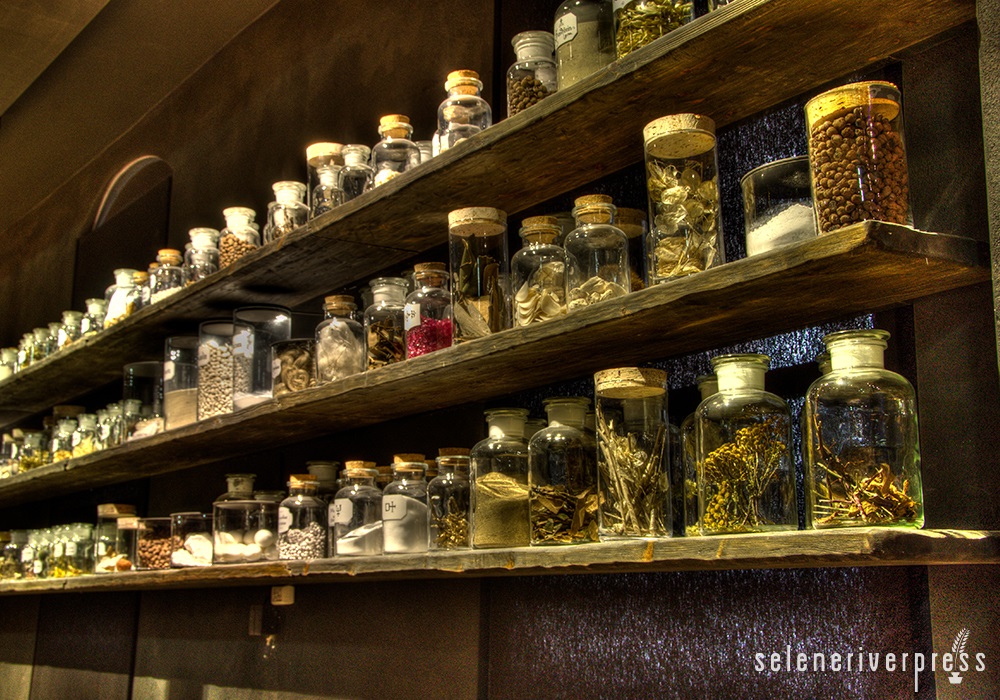Because of the amazing healing capacity of herbs, I’ve been able to regain my health after a serious battle with lupus and other autoimmune diseases. Knowing what I’ve been through, friends and family often come to me with their questions. What herb should my aunt take for her lupus? What herb can I take for my irritable bowel?
I wish it were that simple! But I totally understand. When I was trying to get well, I approached herbs the same way. We’re accustomed to taking pain relievers for our headaches, antihistamines for our allergies, and so on. But herbs don’t work like pharmaceuticals.
If you want to improve your health with herbs, you must apply the following principles to get great results:
#1. Focus on root causes rather than symptoms.
Herbs never force a response from the body. Rather, they work by promoting your body’s innate healing abilities. That means you must uncover the root of your problems and use herbs that address those issues.
Imagine driving down the road and hearing a loud knocking noise coming from the engine of your car. If you turn the radio up really loud, you wouldn’t be experiencing that “symptom” any more, right? But did you solve the problem? Of course not. You’ve got to figure out why your car is making the knocking noise before you can repair it.
You can’t take a specific herb for acne, or menstrual irregularities, or headaches. Those are all symptoms that something isn’t working right under the hood. And before you fix it, you’ve got to figure out which systems and structures need support, and why.
Your body is much more complex than a vehicle engine, of course. With many systems of organs and glands constantly in communication with one another, health issues rarely happen in isolation. It takes a whole web of problems to contribute to a certain symptom.
#2. Use herbs that are right for your constitution and physiology—and even the time of year.
We each have our own unique needs, based on our current physiology, body type, and genetic makeup. Practitioners of Chinese medicine and other ancient healing systems such as Ayurveda were well aware of this and understood which herbs supported the needs of different constitutional types.
They also recognized that different organs are more dominant during different times of the year, and the body’s needs change with the seasons. In the cold of winter, our body may need herbs to help warm up digestion or give us more energy and vitality. In the springtime, the body is ready for detoxification, and the organs of elimination, especially the liver, could use more support. And in the heat of summertime, certain herbs help us feel cooler and lighter.
#3. Give herbs time and consistency.
When you start a new exercise program, you’re tapping into your body’s capability to rebuild and change itself. How long do you think it will take before the exercise helps you develop a strong, athletic body? The answer, of course, depends on several factors: your physical condition when you began, how long since you last exercised, your age, and the effort and consistency you bring to your exercise program each day.
If your condition is acute, meaning you haven’t been experiencing the symptoms for long, chances are that the correct herbal therapies can rebalance your body fairly quickly. But if it’s been a couple of decades or you’re seriously ill, it’s going to take some time for your body to repair the damaged functions and structures. Just like with exercise, this process takes consistency and time.
#4. Use herbs with correct energetics.
Herbs have certain energetic properties that help the body function, and it’s important to match herbs to your energetic needs. These properties can be warming or cooling, drying or moistening, astringent, diuretic, immune modulating, tonifying, adaptogenic, carminative, and many more.
For example, the herb Schisandra is prized for its benefits to liver function. It’s also astringent, which means energetically it’s very constricting and contracting to body tissues. Astringents are great for people who have loose stools, so Schisandra would be a perfect match for those who need liver support and have a “loose” energetic. But if we give Schisandra to someone who needs liver support yet is chronically constipated (a contracted and constricted energetic), it could make their constipation worse.
#5. Formulate properly.
Practitioners of ancient healing systems were masters at the art of formulation, and many of their classic formulas are still used today. Herbs rarely work well when used alone, especially over the long term, because of their energetic properties. Over time, you could end up creating an energetic imbalance in the body.
Herbs need to be formulated to meet your current needs, but also to balance out their energetic affects and strategically support specific outcomes. A formula isn’t a blend of several herbs known to support one certain condition. A formula is a blend of carefully chosen herbs that best accomplish a certain outcome once symptoms and root causes have been addressed. Herbs must be combined with other herbs to help balance out undesired properties or energetic effects. Then additional herbs may be added to the formula to help deliver certain results to specific areas of the body, or move waste out of the body, or improve circulation.
#6. Use high-quality herbs.
It’s important to obtain high-quality herbs from manufacturers that know how to grow, harvest, and prepare them properly and sustainably. If any part of this process is handled the wrong way, the efficacy of the herbs can be destroyed. Worse, the herbal products can be adulterated. So seek herbs from companies that not only understand these processes but also go about them in a way that’s good for the environment.
#7. Use proper dosage and preparation.
How you take herbs matters. Some herbs are effective only in certain preparations, such as teas, tinctures, or capsules. Also, certain properties or energetics of herbs can only be delivered in specific preparations. For many conditions, grinding up a specific herb and putting it into capsules won’t yield results. Tinctures (alcohol extracts of herbs), for example, are absorbed immediately into the bloodstream in the stomach and never pass into the small intestine. Therefore, if you take marshmallow root for its soothing and demulcent effect on the gut lining, a tincture would be ineffective. It must be taken as an herbal tea so it will pass into the small intestine and come in contact with the lining there.
#8. Herbs work best in conjunction with a healthy diet and lifestyle.
Don’t expect more from herbs than they can deliver. If you work against them with a poor diet and an unhealthy lifestyle, you probably won’t get the results you hope for. Good health is a holistic venture. If you want health and well-being, look at your diet, lifestyle, emotions, stress, social life, relationships, spirituality, sense of purpose, past traumas, environmental toxins, and everything else in your life.
#9. Include necessary nutritional supplementation.
Herbs facilitate the body’s natural healing and recuperative processes. They help rebuild, repair, and rebalance all the different structures and functions that need support. But in order for the body to do this, you must give it the building blocks it needs: protein, vitamins, minerals, and essential fatty acids. A good diet is a crucial step, but even if you eat the most healthy, organic food, you still might not be giving your body all the nutrition it needs. Why? Because our food supply is nutritionally deficient from more than a century of poor farming practices, and too many of us consume a diet of refined, processed food. Some amount of supplementation with whole food nutritional products is often a necessity.
#10. Our needs continually change, so our herbs need to change with us.
As you heal and repair your body, your needs will continually change. An herbal formula that perfectly suits you today might not three months from now. Keep reassessing your needs as things change and adjust accordingly.
#11. Get a personalized recommendation from a clinical herbalist.
If you’re looking to get specific benefits from herbs, I encourage you to make an appointment with a clinical herbalist. A holistic assessment will help identify what your body needs and what herbs will help meet those needs. You’ll also learn how to properly use herbs in the right preparations and dosage. A clinical herbalist can save you time, money, and frustration—and help you get great results from herbs.
Here are some more references for further study:
- Herbal Medicines: The Most Effective Ways and the Best Times to Take Them
- Medi-Herb Quality Assurance
- Medi-Herb Professional Strength Herbal Products Quality Brochure
- The Three Basic Principles of Traditional Western Herbalism
Images from iStock/wirbnbrinf (main), Dirima (woman), wildpixel (supplement).





